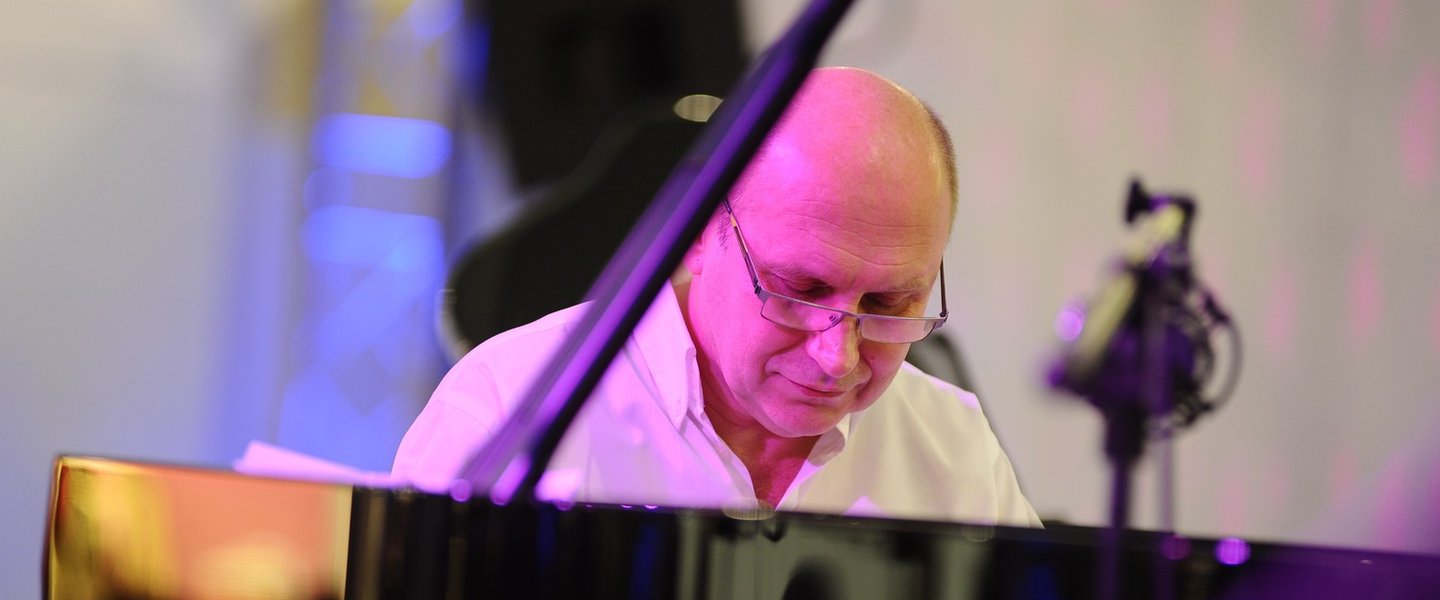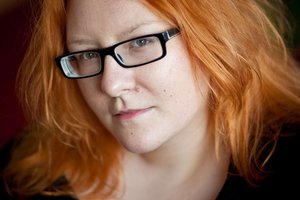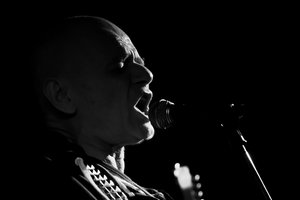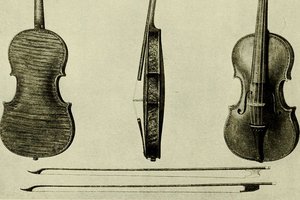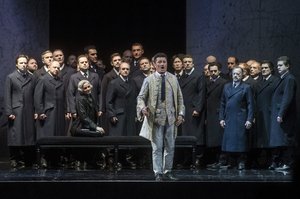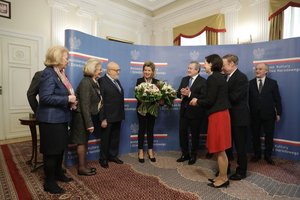Hitting a nostalgic note
Polish pianist, composer, jazz musician and Grammy winner, Włodek Pawlik, talks to Poland.pl about internationally acclaimed Polish jazz musicians, the Chopin of jazz music, hearing Poland in musical compositions and telling history through music.
Poland.pl: Did you always want to become a pianist and jazz musician?
Włodek Pawlik*: I think I always wanted to become a pianist, for as long as I can remember. Looking back, I remember my first piano lesson when I was four or five years old. My parents, both of them professional musicians, wanted me to go. My father, a violinist, composer and saxophone player, discovered quite early on that I have a good ear. Growing up, the piano was always my natural companion. I discovered jazz a little later. I was born in 1958 and Polish radio in the 1960s played excellent swing music, which was the perfect music to dance to back then. It was very popular because, in Poland as well, swing music could be danced to at different occasions – at restaurants, parties and dance halls. A lot of the popular songs from that time had a swing element in them. This was one of the paradoxes of life in grey Communist Poland, which, at least officially, was committed to fighting manifestations of capitalist imperialism, including in music. By the end of primary school, I had decided that I wanted to go into jazz music. There was something in the music that intrigued me. Its improvisational nature was definitely part of it, as was the rhythm, freshness and spontaneity of the music. I discovered within myself an ability to improvise. This was a turning point for me during primary school and at my music-focused middle school in Kielce. I joined my first jazz band – a quartet – in Kielce when I was 15. Ever since then, classical music and jazz have followed parallel paths for me. I studied piano in Warsaw, under Prof. Barbara Hesse-Bukowska. In 1985 I moved to Hamburg to study jazz music. From this moment onwards, jazz became my way of life, my musical logotype.
Who are the Polish jazz musicians that you rate most highly? During its prime, Polish jazz music was renowned the world over, in particular due to Krzysztof Komedy’s music. Do you draw inspiration from the earlier achievements of Poland’s jazz scene?
Without a doubt. Krzysztof Komeda was, and still is, one of those artists, musicians, who had a significant impact on my musical tastes. Komeda was without a doubt very original, I would even say very Polish when it came to jazz. One can hear the distinctive characteristics of his music in his jazz and film compositions, which are very different from American jazz music even though he drew a lot of his inspiration from American music. Some critics say that his music contains what they describe as nostalgic notes. I agree with this assessment. Komeda is a modern-day Polish Chopin. He was like a comet – he lived a short life, but his legacy is enormous. I myself am also prone to these nostalgic notes. At times, I am drawn more to the East than the West, when it comes to a specific sensitivity, a unique aesthetic quality, that is firmly rooted in our culture, tradition and history. In the 1960s, the Polish jazz scene was bursting with talents such as Krzysztof Komeda, Andrzej Trzaskowski, Andrzej Kurylewicz. Poland made a name for itself within the jazz world. In those days, it wasn’t easy being a jazz musician within the “Eastern Block” as American culture was denounced, but obviously not successfully enough. This created a certain tension, a feeling of rebellion among Poland’s intellectual elites for whom jazz was back then a symbol of freedom, representing a different, better world. Jazz was a way of standing up to the fossilized, top-down approach on political culture dictated by the authorities. In this way, jazz helped widen the breathing space for the independent art and culture and sphere. Jazz music attracted defiant individuals, including many highly talented musicians, writers and film makers. That is how its legend was born. I had the opportunity to experience this amazing atmosphere to a certain extent in the 1970s, during my youth, when jazz was a form of dissent and student protest. In Poland, more than anywhere else, jazz had a strong anti-systemic backdrop. That is perhaps why it also attracts a new generation of Polish musicians.
Do you think it is possible to hear Poland in music? If so, how? Are there qualities in music that are distinctly Polish?
Yes, there are. We grow up in a certain cultural milieu, a certain tradition which connects generations regardless of the context. Take the compositions of Mikołaj Gomółka, Fryderyk Chopin, Mieczysław Karłowicz, Karol Szymanowski, Stanisław Moniuszko and Ignacy J. Paderewski for example. There is a common thread connecting the compositions of these musicians. All of these composers drew inspiration from Polish folk music. The mazurek, oberek, krakowiak, kujawiak, polonez, and Polish highlander music: all of these types of music have been carried down by way of stylistic and compositional tweaks, as we saw in Chopin and Moniuszko. That is the common thread and this thread contains an element of nostalgia. Our main shared legacy is that of Polish folk music, which connects styles and artists from different eras.
What does the life of a Grammy laureate look like? Rather than only playing at big events, you also perform a lot of your concerts in smaller cities. You want to share your music with everyone.
The circumstances of the award and its inherent advantages have allowed me to share my music with a very wide audience – from jazz connoisseurs to people who until recently had never really given jazz much thought. Thanks to the Grammy, people have not only become more interested in me and my work, but also in jazz as a musical spectacle in its own right. This is something I am very happy about. It is amazing.
How do you create your music?
Creating music involves a conscious decision to extract oneself from the circumstances and confusion of your surroundings and entering a separate world, requiring concentration, quiet and loneliness. This is by no means an easy process, because it demands a deliberate withdrawal from your immediate surroundings. It’s a bit like joining a cloister, immersing oneself in contemplation. Perhaps there are composers who are able to sit at a table in a café, surrounded by noise, and are able to compose music. I am not able to do this. Often when I get down to composing, I switch off my phone and don’t see anyone apart from my wife. I distance myself from the world of commotion and media hype that we live in and enter a different world, a world of inner thought, emotions and moods. I concentrate on myself. Only then can I compose something. There are times when a certain theme or phrase gets stuck in my head. At times it becomes so dominating, like a big shadow that follows me everywhere, that at a certain moment I decide to write it down. That’s it. I trust my instinct. Sometimes it is a question of grasping something which has absolutely no meaning for someone else. On the other hand, when I am commissioned to produce certain compositions there is a sense of responsibility of honouring the contract and sticking to deadline. I then just tell myself that the inspiration has to come, and that’s it.
My problem, or maybe its rather a blessing, is that I’m not just a composer. In the 20th Century, music schools created divisions between composers and performing artists – either you were one or the other. This is a shame. I enjoy playing my own music because it feels natural. I create music here and now, for myself. This is my way of seeing the world and the reality we live in. When I have back-to-back concerts I put all my composing work aside and focus exclusively on the concerts. This self-discipline and ability to glide between both worlds took me years to master. It is not easy. Playing concerts is a very emotional experience. It is about reaching out to people and sharing the most beautiful aspects within relationship between artist and listener. There is nothing more amazing than the beautiful, abstract dialogue with listeners during as well as after the concert, when everyone is smiling. In this moment, we don’t know what just happened but we know that it was something great – we become a community, an unconditional one. I am the messenger between the musical sphere and the audience. These are delightful moments. This is the magic of music. Despite this, there comes a moment when I realise that “this is not enough” and that I need to find time to compose. I dedicate around three to four months each year to writing music.
How is film music created?
Films portray more or less real events within a two-hour timeframe. Music, on the other hand, expresses what a picture and dialogue is not able to portray – and that is a full palette of emotion, from fear and horror to the highest forms of joy that a person can feel. The expressions and gestures of a protagonist in a film are not everything. Music is needed in the scene in order to create a certain emotional reaction within the viewer. This creates subconscious feelings, feelings that we are not able to describe in words. Music helps us tug emotional strings. Music can describe love without using any words, it can help express the emotional state of the protagonist, it can portray beautiful sceneries, impressions and reactions. This is the role of music in film.
You are currently working on the soundtrack for a film on Tadeusz Kantor. What will this music be like?
This is a relatively new project. Three pieces that I composed have already been used for scenes shot in August in the basement of the Krzysztofory Palace in Krakow, where Kantor ran his theatre. The scenes shot there were of a jazz party with a live swing orchestra in the 1950s, when the young Kantor met his first wife. I play the head of the band and even had one line – I wonder if it will make it into the film. I felt like a bit of an actor. They’re still shooting the film. I think the soundtrack for the film will take on its final form next year and will be added to the film once it has been edited.
Take the compositions of Mikołaj Gomółka, Fryderyk Chopin, Mieczysław Karłowicz, Karol Szymanowski, Stanisław Moniuszko and Ignacy J. Paderewski for example. There is a common thread connecting the compositions of these musicians. All of these composers drew inspiration from Polish folk music. The mazurek, oberek, krakowiak, kujawiak, polonez, and Polish highlander music ... That is the common thread and this thread contains an element of nostalgia - Włodek Pawlik
What are you working on at the moment?
I am currently working on a very interesting project that is very dear to me. I am composing music to poetry written by Adam Zagajewski. This is a big challenge for me, as this is the first time that Adam Zagajewski has made his poems available to be used with music. Before he used to be staunchly against it. I am therefore the first composer to have the chance to add a musical quality to his poetry, to give it musical meaning. For me personally, Zagajewski’s poetry has been a great discovery. His poetry is not completely new to me, but I now have the chance to get to know it on a whole new level as I work with his poems on a daily basis. I almost feel like a poet myself. The opening concert for this project is scheduled to take place on 15 November in Krakow. It will be a recorded concert. A CD based on the recording will be ready by the Christmas time. In October, I still need to finish a project entitled “Pawlik Symphonies”, a recording of four compositions leaning in the direct of symphonic music. One of the pieces contains a cello with an orchestra, the second contains two pianos with an orchestra, the third is a flute accompanied by an orchestra and the fourth is a piano rendition, in which I deliver a solo performance. My son will play a piece called “Cellomania”, a cello rendition, as well as performing together with me on two pianos in “We are from here.” The project is a result of the success we achieved this year at the Musical Festival in Lancut. Apart from that it’s all concerts, concerts, concerts.
What do you like most about Poland?
In good times and in bad, I will always choose Poland. Poland is my port, my safe haven. Seen from the perspective of a nomad, because I am constantly on the road, Poland is my linguistic sanctuary, my sanctuary of predictability. Tradition, culture, poetry and music. This is what I am made of, this is what inspires me. This is what motivates me, what gives me energy.
Interviewed by MAGDALENA MAJEWSKA

*Włodek Pawlik – born in 1958, composer, jazz pianist and educator. Graduate of piano studies under Prof. Barbara Hesse-Bukowska at the F. Chopin University of Music in Warsaw. In 1990 he graduated from the Jazz Department of the Hochschule fur Musik in Hamburg, Germany. He received his doctorate in 2007 from the F. Chopin University of Music, where he gives lectures on musical improvisation. He is the leader of the Włodek Pawlik Trio, consisting of W. Pawlik (piano), Paweł Pańta (contrabass) and Cezary Konrad (percussion). He has played together with world famous musicians, including the American trumpeter Randy Brecker. In 2014, he received a Grammy Award, the most prestigious music prize in the world, in the Best Large Jazz Ensemble Album category for his album Night in Calisia. He was the first Polish jazz musician to win the award. He has recorded 30 albums and has written music to over a dozen films, including “Rewers” directed by Borys Lankosz.
16.10.2015
